Johnny ‘V’ was just thirteen when he got his union card to play music professionally. Thirteen! There seemed to be little doubt on his direction in life. His father and uncle both played music and the Vernazza’s were living in the Bay Area…it was the early 1960s. Johnny would begin his journey by playing every teen center and Moose Lodge that would have him. By the late 60s he would be on stage at some of the most legendary venues of that era; Winterland, Golden Gate Park, the Carousel, the Fillmore and Wumper’s Old Man. His musical runnin’ buddies included some the best that ever were; names like Elvin Bishop, Toy Caldwell, Jerry Garcia, Norton Buffalo and Janis Joplin.
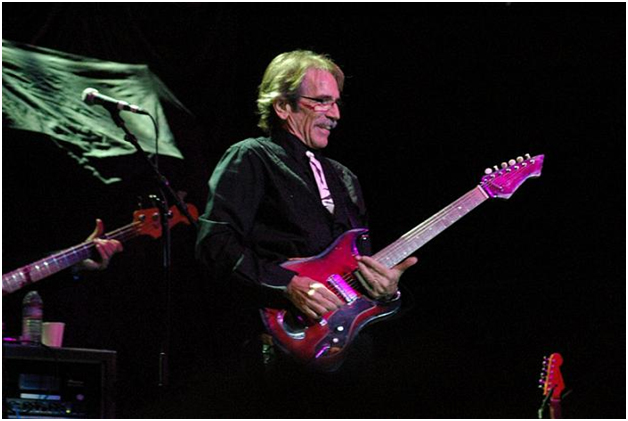
When we had the opportunity to sit and talk, Johnny was soft-spoken and gracious when he reflected on his experiences and musical friendships. It was almost the polar opposite of his raucous, guitar-shredding stage presence. There are so many layers to this Rock n’ Roll legend, so we started our conversation with those early, formative years. “I was born in San Francisco and grew up in Redwood City until about 1958.” Johnny says. “I was about eight years old when we moved to Daly City. It used to be all farms; even when I grew up there was a pig farm. Colma is right next to Daly City and it was known for its cemeteries and the Christian Brothers Dairy, mainly farms and a lot of florists.”
I read your family was very musical, especially accordion music. How did you become a Rock n’ Roll guitar player? “My lack of being able to read music.” Johnny smiles. “I was faking it for awhile but my dad and uncle were very well known accordion players at that time. Accordion was a very big deal back then, the 30s, 40s and 50s! A long story short, my accordion music teacher caught me faking it, I’d take the music home and my father would play it and I would listen to him and play it back. As the music became more complicated I would miss the value of some of the notes then my teacher realized I’d been fooling him. He got angry. So, I saw a guitar in the studio and asked my dad if I could try that…and that was it!”
Were there garage bands growing up? “We actually were starting to play and being hired so we rehearsed in my mom’s garage. I joined the union at thirteen and I was playing the accordion and the guitar. My buddy’s father was the treasurer in the union. He said you guys might as well join the union. We were underage so he said, ‘I’ll grandfather you in. You’ll need a note from your parents.'”
So what type of venues were you playing? “Oh, the Masonic Temples, Jewish clubs, Moose Lodges and a lot of Teen Clubs and Community Centers, they all had dances and activities on the weekends. So, we were always playing and making good money.”
You started on guitar, but you also played the bass. Tell us about the band, Day Blindness. “That was the band I started playing bass for. Then we changed the name to Fox. They already had one LP out under the name Day Blindness and they turned into a rock trio, so I took over the lead vocals.”
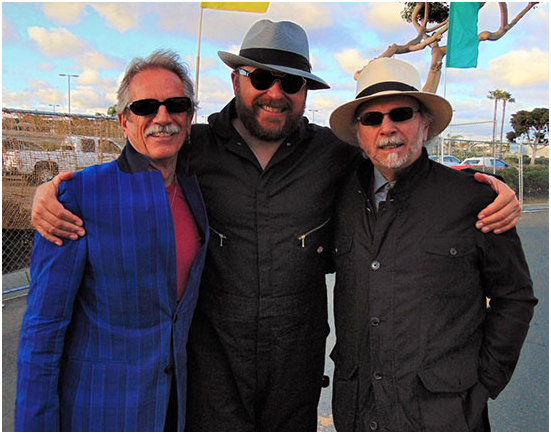
The 1960s in the Bay area was about to become the center of a world-wide musical revolution. “Fox was a good band and we worked a lot in that scene. Our guitar player (Gary Pihl) went on to play with Boston and Sammy Hagar. It was a good band and we played at the Fillmore, Bill Graham really liked us. In fact, he remembered when I started playing with Elvin, he remembered that band. We (Fox) ended up going to Hawaii on a one-way ticket, we found out later it was the Korean mob that brought us over there. Then we were kind of stuck in Hawaii, which sounds wonderful but it’s not really because there’s only so many places to play…and we had to play under their blanket. We played a concert and met John Selby, who was producing Quicksilver and he asked us how we got there and we told him. He told one of the road guys to go get a truck, put our equipment in it and go over to our house and get all our stuff. So he took us under his wing, we were black-balled from all the clubs, but we were able to play concerts. So we made a living doing that. A friend of mine worked for Janis Joplin and when Janis came over there, we all met and that’s how we got off the island. It was through Janis.”
You were able to leave the islands and go back home, because of Janis Joplin? “Yeah, she called her promoter and said if we didn’t open for Big Brother they wouldn’t go. So we did four shows with Big Brother and then came back. But Quicksilver at that time…those guys were fantastic!”
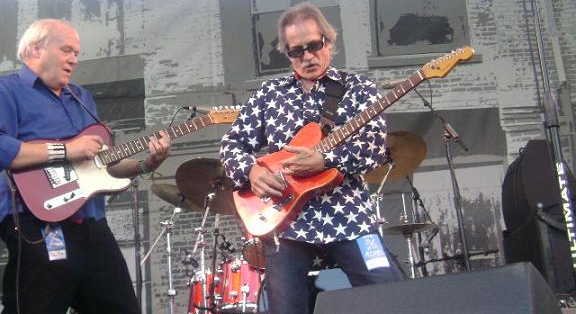
At this point of the interview, we both went off on a tangent…’ooooohhh, have another HIT of Fresh Air!’ “I still think of that song, once in awhile.” Johnny smiles, then adds. “Cipollina’s amp rig was fantastic, with the horns on top, he was such a great guitar player.”
Did you get to hang with Janis a little? “I knew Janis pretty well, but it was only about a year when she passed, though. My friend worked for her and he was mentioned in some books about her. We’d go to lunch or over to her house a lot. That’s where I met Nick Gravenites, so I’ve known Nick from those days. Also another guy who came back from Hawaii with us who worked for Fox as a roadie was Jim Green. I had mentioned to Jim when he went back to Georgia that we were looking for another singer and that’s how Mickey Thomas was found.”
Our mutual friend, Charlie Musselwhite used to speak highly of Janis and how sweet she was as a person. “She was very, very sweet and a lot of people misrepresent that. That really bothers me to this day to hear something disparaging about her. She was a very, very nice person, she was troubled is all, but she would give the shirt off her back if you needed it. I remember after Monterey she was talking about her new band, the Full Tilt Boogie Band about how she loved Otis Redding’s style and she changed her dance moves and her singing after seeing Otis. You have to think now, if they both had survived and what if they’d done stuff together. Oh, and after that lunch we switched cars and raced back to her house. I drove her Porsche and she drove my dad’s Karmann Ghia.”
You played with a band called Gideon and Power. “Gideon was really interesting and I wish more people knew about him and there was more out there about him. He was a gospel singer that turned regular Baptist Gospel into a club act. We were still doing the old gospel tunes that you would hear in church, but he would have raps in between that would explain different things. The music was fantastic and at one point he had a coffin, a small coffin we would haul around in the back of my truck or on the road. He would tell people during the song, ‘Give Me my Flowers while I Live’ and he’d have people come up and look in the coffin. There were flowers on the casket and they’d look in…there was a mirror in there. It was his way of telling everyone how much you love them, while you’re here.”
Talk a little about Wumper’s Old Man on Grant in San Francisco? And didn’t Paul Butterfield used to come in there and jam with you? “I didn’t actually know Paul that well, but we did know each other. He and Elvin were pretty tight. But concerning Wumpers…that was Perry Welsh. (Perry and the Pumpers) Perry used to play with Elvin and was Elvin’s road manager and he played harmonica and sang. Perry was a true character in the purest sense, there was stuff he did that was historical. He had a house; he and his wife split up, so myself and the bass player, Fly Brooks who passed in 2010, we moved in with Perry and started this band. Perry and I had tried to start ‘Perry and the Pumpers’ previously and couldn’t get it together. The original bass player for Perry and the Pumpers, Johnny Ace, went back to New York.
So we started messing around learning some blues stuff and I moved back to guitar, Perry talked me into doing that. I’d still been playing bass with Gideon and Luther Tucker. Luther found out I played guitar, so Luther had me playing guitar, too. Perry played harp and was a great singer and he knew all the cool blues stuff so we were really one of the first blues bands out of that area, because most people were focused on rock. It was 1971. We started playing and Perry bought this big metro van we called the Pumpermobile. The name pumper came from Cedar Rapids, Iowa, there was a song called ‘I’m an old pipeliner and I lay my line all day’…pumping oil. And we would drive that old metro van around all hours of the night creating holy hell all around North Beach and playing in all those clubs. The club Wumper’s, the owner really liked us and Perry talked him into letting us play every weekend and we usually filled the place on Friday and Saturday. Then people like Elvin started coming in and when Butterfield was in town, Paul would come in. And Luther would come in all the time, so it got to be a place where people who loved blues started coming. Word got out and it was all about the music. Right down the block was the Orphanage and the North Beach Revival that had Mike Finnigan and his band playing. You could walk to all these clubs and sit in. That was my university. Later on when I got in Elvin’s band, that’s what we’d do. That went on for about a year before Elvin took me and the bass player Fly, and the rest you already know.”
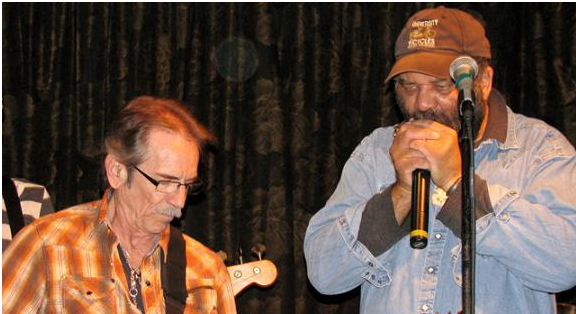
Before we get away from it, Luther Tucker was one of the sweetest guys. “Luther was phenomenal and such a nice guy. One time we were rehearsing at his house and Sunnyland Slim was playing piano and Luther goes ‘let me buy you lunch.’ He was living in Hunter’s Point at the time and we walked up to this BBQ place. He didn’t talk much but he asked me, ‘when we get back, would you fire my band for me?’ I looked at him in shock, I’m 21 years old and he wants me to fire his band. But that’s the way Luther was, he didn’t want to hurt anyone’s feelings. Elvin loved Luther and years later I kind of noticed similarities that Elvin picked up from Luther and I learned a lot of rhythm guitar playing from Luther.”
Blues music seems to have that personal connection, handed down or shared with fellow musicians more than any other music. “I hate to say it, but it’s gone now because things change. Now, young people learn about the blues from the internet and there’s so much out there, they forget to go back to the roots. Back then, as a young man I learned to shut up and listen and watch and that’s kind of gone now. Things have changed; I can’t say in a bad way, they have just changed so things will be different in the future.”
You’ve said that some of your influences on guitar were players like Chet Atkins and Steve Cropper. “I think Steve Cropper because when I was growing up and that was the type of music I was listening to…all the stuff from Stax-Volt and he was the king of rhythm guitar. I was listening to all the guitar players. Freddie King was playing instrumentals before he started singing because that’s what sold. Luther was a big influence – first hand. Chet Atkins, I couldn’t play jazz or any of his stuff, but I loved the way he played and I would listen to him and watch him on TV. Elvin, of course was a learning experience because of what we listened to and what we put together at that time. I did a session with Cropper in 1980, I think it was with Mickey Thomas for MCA it was quite an experience because the tables were turned. He played lead on that session and I played rhythm, so it was very interesting.”
You start touring with Elvin Bishop; things must have really changed in your musical career? “The first band was a 5-piece band before Mickey, that band really had something going on. Then we added Mickey as a background singer through my connection with Gideon. And he took over a lot of the leads, and after ‘Fooled Around’ hit things changed our position on the totem pole, so-to-speak. Everything got larger, our road crew, lighting and it was quite the experience for a 24-year old.”
Elvin Bishop Band ‘Fooled Around and Fell in Love’ (1975)
Must have been like riding a rocket. What was it like for you? “There are some blank areas!” (laughing) “Suprisingly, when I read Keith Richards book, he said he remembered everything. Well I don’t remember everything but I remember quite a bit. I left Elvin’s band in ’78 but I still played with him. It got a little fuzzy in the 80s because I was playing with Norton Buffalo. But I never noticed until I got sober, just how close I was with Elvin, he was like a big brother to me, so when I quit the band he took it personally more so than some of the other people that left the band, so we had some odd dynamics until the 90s, but I just talked to him yesterday.” Johnny smiles. “Things have changed.”
That’s good to hear. Talk about your time with Norton Buffalo and the Knockouts. “Working with Norton was quite an experience because when I left Elvin, we were on the road constantly; 300 days a year almost and playing more shows than that. When I went on the road with Norton it was more vans and RV’s and shared rooms, but it was a hell of a lot of fun. Norton was such a great guy. Norton would go on the road with Steve Miller and when he would come off, he would subsidize some of his tours. That’s how much he loved playing with the Knockouts. The band had different names; the Commandos…we changed the name on every tour.” (laughing) “One tour was called ‘Driven to Extinction’ and when we were halfway through the tour, someone noticed extinction was spelled wrong.” (laughing) “Those tour badges are now collector’s items. It was great touring with him and we were playing constantly, six nights a week.”
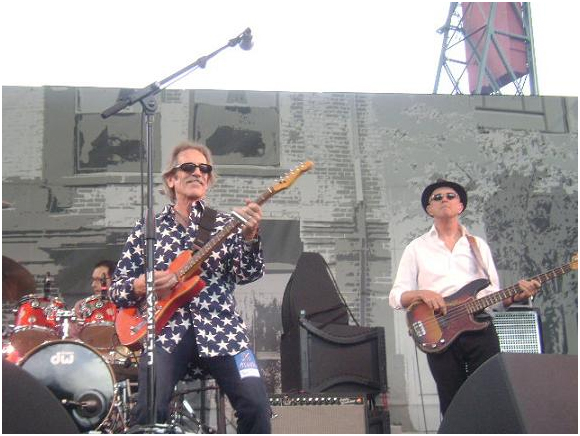
You played with Commander Cody, George Frayne. “I played guitar with Commander Cody. That was fun; he was a good friend of Norton’s because Norton played with him. George was great and he was my guest a few years back at Gator by the Bay. When I lived in Stinson Beach, George lived there, so we would close down the Sand Dollar the only bar and restaurant in town. We used to laugh about it because both of us said the only thing we could get is asphalt burns on our knees on the way home because we lived so close. George was great, a great player, great songwriter, a great sense of humor and a great artist.”
Another name from that era, Jerry Garcia. “He used to come by because he really dug Elvin and they were really close from the Haight days. There are pictures online, but he would come by and jam.”
Another chunk of your musical life was with the Capricorn label. And that included Charlie Daniels, Bonnie Bramlett, Dixie Dregs, Marshall Tucker…“Toy (Caldwell) especially, when we were on the road together every night after the show we ended up in my room. He roomed with his brother Tommy, but we’d end up in my room playing guitar till four in the morning, laughing and drinking and all that good stuff. On days off we’d go fishing and he took me hunting…Toy was a good cat.” But that label (Capricorn) Gregg (Allman) was the main person that started the ball rolling for Jimmy Carter’s run for president. But we all did benefit shows to put Jimmy in office. He was a fantastic person and I met him numerous times…truly, one of the greatest humanitarians of all time.”
How did you end up playing with Van Morrison? “That was an odd thing; we were playing the television show ‘Midnight Special’ and Van showed up and didn’t know he had to have a band, so we learned the song ‘Domino’ in about 20 minutes and pulled it off. It’s on Youtube and it sounds damn good, you know?”
Elvin Bishop Band backing Van Morrison on the Midnight Special
Again, your ability to hear something and play it back is just incredible. “I think it’s just something you’re blessed with. It’s a blessing and a curse. Ed Fletcher who worked for Van and later on went to work with the Doobie Brothers, taught me the guitar part really quick, because he played guitar. Years later I jammed at Humphries with the Doobies and I sat in and did ‘Listen to the Music’ and we’re getting ready to go on stage. Ed asked me, remember that part and I said I’m a little rusty and he showed me again…then said, this is the second time I’ve showed you a part! We laughed about it.”
Do you know Greg Douglass who lives here in Southern California? “We just did a project together with John Avila from Oingo Boingo. It’s ongoing but Mark Langford who owns Rock and Roll San Diego, took 200-year old Irish poems and put them to music. It’s kind of rock-based, but it’s really good. It hasn’t been mixed and mastered yet, and it’s still untitled…”
In 2014 you released ‘Lions and Thieves’ and Albert Lee played on that. “Yeah, Albert came in. It was interesting because I was trying to get Don Peake from the Wrecking Crew to produce it. He played with the Everly Brothers and he was the first white person to play with Ray Charles, an incredible guy and a beautiful person. I wanted him to produce it but I just didn’t have the budget. He introduced me to Albert some years back and I wanted him to play on a couple of songs, so we went up to Don’s studio and we recorded Albert up there and he was just incredible as everyone knows.”
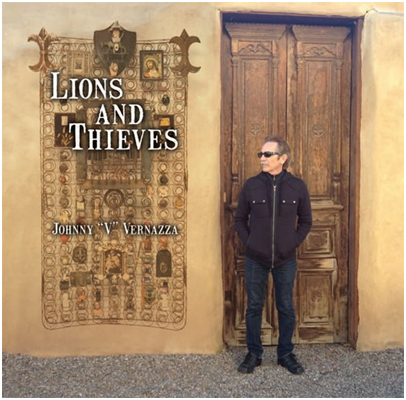
Where did the title come from? “I was at the opera, Salome. King Herod was berating Salome about her love interest. And he says ‘I saw him lounging under the palm trees in the desert with the lions and thieves.’ And I thought that is such a cool line and when thinking about it later, you know meeting Jimmy Carter but I was also friends with the president of the Hell’s Angels. Lions and Thieves…that connection; from good people and people that were considered bad but had treated me really well, and were very good people in their own sense. There are two songs on that album that are about cheating death, because I have. But like Elvin says, ‘Quit complaining, we beat the odds!'”
You were a constant at the Record Plant in Sausalito, another hub for musical excellence. Who were some of the players you ran into? “Just about everybody!” (laughing) “I used to play pinball with Buddy Miles, that’s how I met Buddy. He was holding court at a club down in Santa Cruz and I would go down and play with him a bunch. And Bob Johnston, he produced Bob Dylan, he was doing some production there, so I started playing guitar on a lot of his stuff. I lived maybe a half mile away from the Plant, so I was always there.”
Stephen Stills? “Yeah, I used to see Stephen there. It’s funny because the stories I have about Stephen are more about partying than anything else.” (laughing) “He’d come by to see Elvin and he’d come backstage or we’d go up to his room and take our guitars.”
You talked about some current recording projects, any other musical endeavors looking down the road? “I’m getting ready to record in January up in Greaseland with Kid Andersen. It’ll be called the ‘Gates of Redemption’ and Elvin will definitely be on it.”
Your road is truly incredible, playing with some of the most notable artists of a generation. And growing up so close to ground zero; the right place at the right time. “You know Elvin says that on the ‘Blues Rolls On.’ He says once again I was at the right place at the right time. I always tell everyone, its talent of course and how hard you work, but it all comes down to being in the right place at the right time…and sometimes the wrong place at the right time. It just so happens at that moment in music history that whole area is where it was happening. I’m sure other cities had their little scene, but at that time it was the epicenter. Even when I joined Elvin’s band, every night we’d play guitar then jump in a cab and go to maybe five or six clubs a night and sit in. Then we’d go to Berkeley and do the same thing. Winterland we played so much, the Carousel; I never played the Avalon but our drummer lived in the basement and we used to rehearse there so all those places were home to us and everyone was so generous and worked together.”
Most definitely…another place and another time.
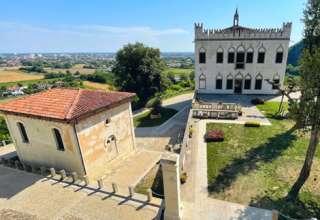
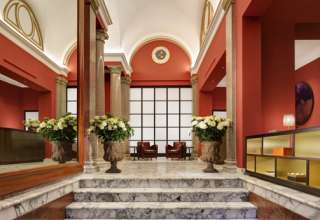
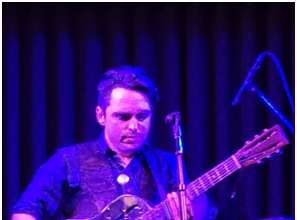
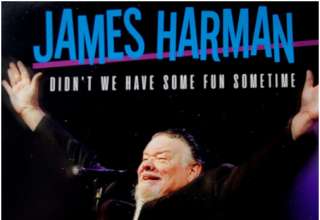
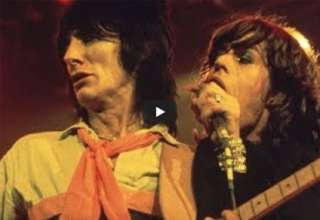
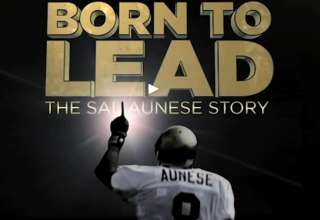
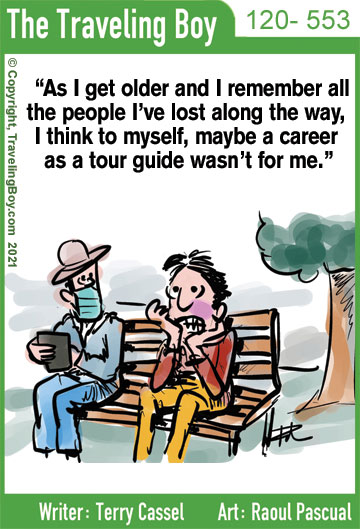
















JUDY ELLIOTT
May 18, 2024 at 4:40 pm
I HAVE A SCARF FROM WAY BACK ON JOHNNY V IT SAYS JOHNNY V ON IT I PUT IT AWAY AND JUST FOUND IT AGAIN WAS GREAT THEM ALL THE TIME